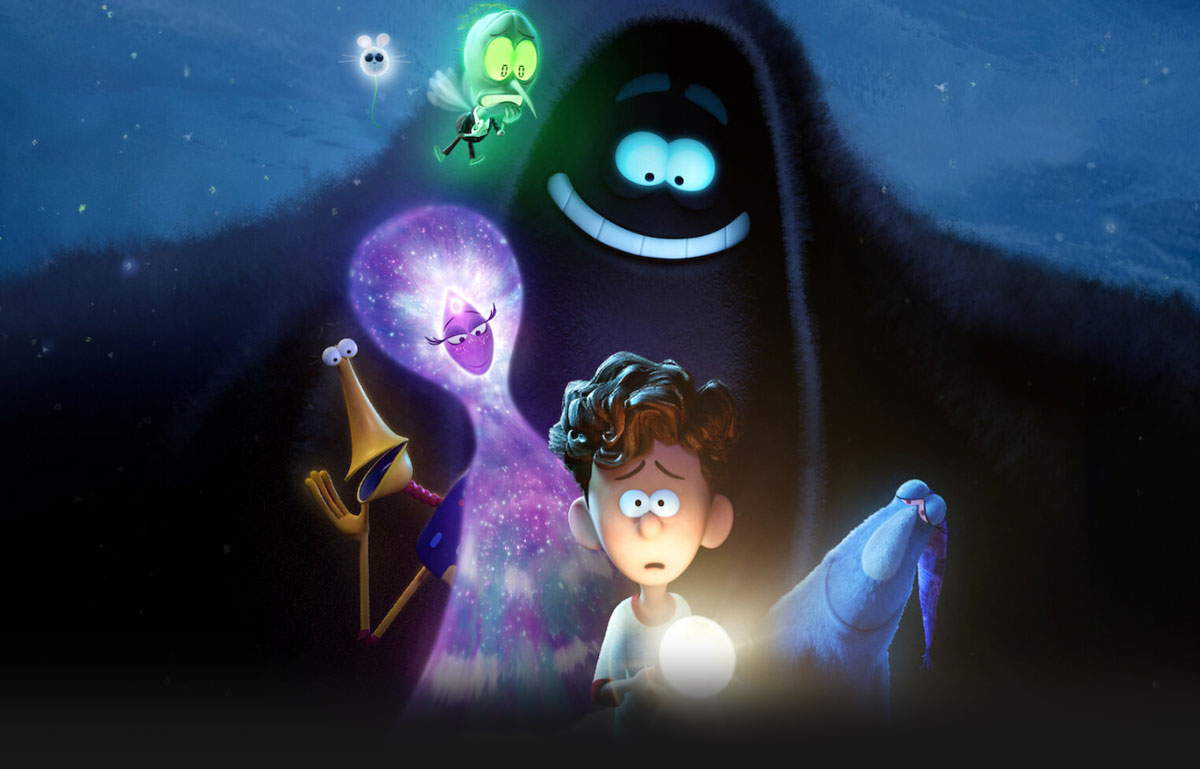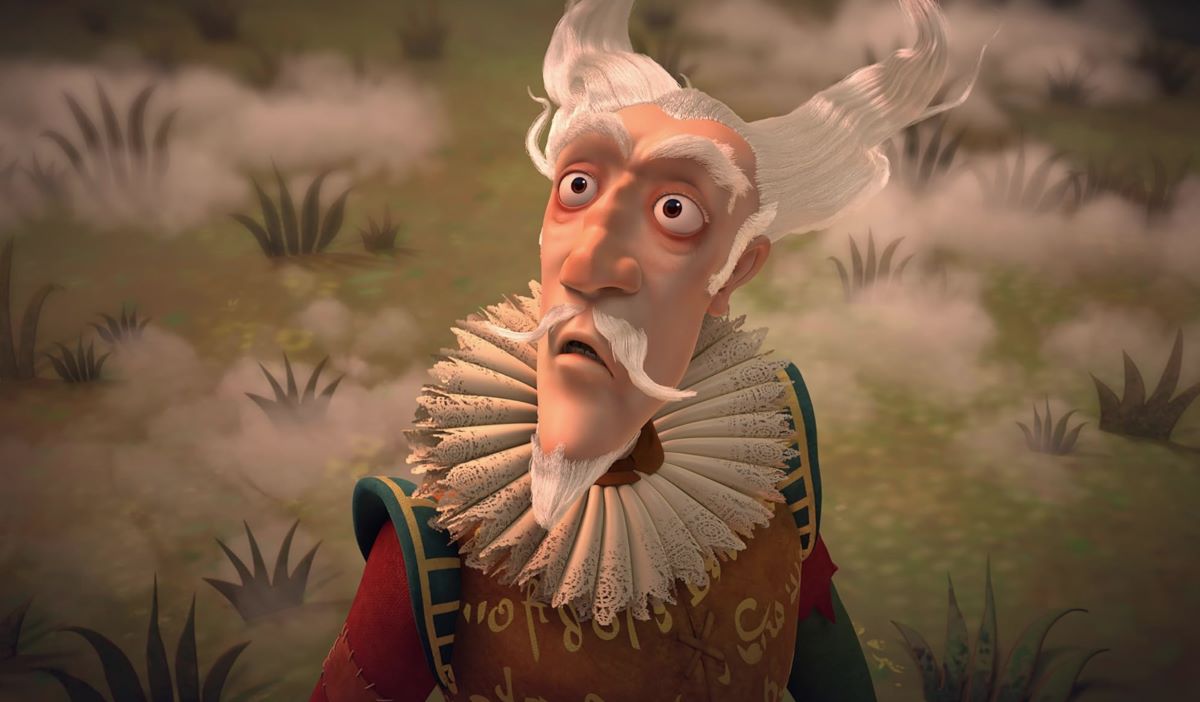Orion and the Dark, a review: Embracing Darkness with Charlie Kaufman
The review of Orion and the Dark, a new and precious DreamWorks animated film distributed by Netflix, draws inspiration from Charles Dickens, Inside Out, and Rise of the Guardians for a deeply existentialist, entertaining, and moving tale.
Netflix does it again with animation, delivering yet another surprise. As if the streaming giant’s recent successes, which have propelled titles like Nimona to an official Oscar nomination for 2024, weren’t enough, Hastings’ platform continues to invest significant creative and financial resources in animated products, a field where Netflix has always shown foresight and vision. When the fusion is between auteurship and animation, the outcome is even more intriguing.
This is the case with the latest, Orion and the Dark, marking Sean Charmatz’s directorial debut but finding its greatest value in the writing of the brilliant Charlie Kaufman, in his second collaboration with the platform following the complex and beautiful I’m Thinking of Ending Things. Returning to his roots as a screenwriter, Kaufman lends his storytelling prowess to a cinematic model previously explored (with Anomalisa) and appreciated, this time offering a film accessible to all ages and an existentialist message that is both tangible and dreamy, breaking down more than one barrier to touch the very heart of fear.
Orion and the Dark: Stepping out of the comfort zone
Orion and the Dark is the eponymous adaptation of Emma Yarlett’s children’s novel, from which it substantially diverges in narrative approach and script. Kaufman is not known for simplicity, and here he channels his erudition and talent into a film that, while aimed primarily at children, does not shy away from the ethical and philosophical weight of his thought. The protagonist, Orion (Jacob Tremblay), named after the constellation whose astrological virtues were praised by the poet Manilius for making “the night simulate the brightness of the day and fold its secure wings,” is a mythological hero placed among the stars by Zeus. In the film, however, he is a scaredy-cat, frightened of everything from the school bully to spiders, bees, the toilet flush, and radio waves. His greatest fear, surpassing all others, is the dark. Orion simply cannot understand or cope with darkness, feeling tormented by it, until Darkness itself (Paul Walter Hauser) decides to reveal itself to him as a personified celestial entity. The goal is to spend 24 hours together to conquer Orion’s fear, leading him on a miraculous journey around the globe to meet other nocturnal entities (reminiscent of Rise of the Guardians or the emotions in Inside Out) and to understand the more real and vital meaning of Darkness.
Kaufman’s touch is evident. It’s felt in his references to David Foster Wallace, his juxtaposition of superhuman nihilism with his beloved existentialism, his mentions of the Sundance Film Festival, and his indirect nod to Werner Herzog. Quotes, references, and reflections that might seem unsuitable for a 7-year-old are perfectly integrated into a tender, clear, and delicate narrative, where those who wish to dive deep can do so, enjoying a film of significant cinematic and intellectual caliber (as revised from the original novel). Yet, those who remain on the surface experience a gentle, educational tale about facing one’s fears by stepping out of the comfort zone, particularly by getting to know what one fears most. This, we believe, is the significance behind the choice of Orion as the name: a star that radiates through the night and sweeps away darkness.
The Identity of Darkness
However, the most intimate question Charlie Kaufman poses is about the very identity of Darkness, which, due to those who fear it, experiences a profound existential dichotomy: whether being Darkness means self-determination or merely “what others see,” which is just obscurity. Darkness has a heart; it’s friendly, loves its job and its friends, but the millennia-old fear it incites in adults and children alike leads it to believe it’s not well-liked, that it’s the villain. While Sleep (humorously depicted putting people to sleep!), Dreams, Nocturnal Noises, Insomnia, and Quietness are effects that live in Darkness’s shadow, it begins to see itself as the greatest problem in the world, especially when contrasted with its tireless and iridescent rival, Light. Supported by Charmatz’s solid and irresistible debut and the excellent animation work of Mikors Animation (behind Captain Underpants: The First Epic Movie and Teenage Mutant Ninja Turtles: Mutant Mayhem), with a hybrid production model, Kaufman attempts to show the essential interplay between opposites, which, while living in reciprocal alternation, must always host a part of the other within. Thus, if light can contain darkness, darkness must necessarily harbor some light.
There is life in the day and life in the night, even if we don’t see it; colors exist in darkness, even if dimmed or blurred. The author contemplates fear as a great engine of preservation and survival but also as the first and immense obstacle that simply prevents us from living and being. Sometimes, trivially, one must feel fear and do something anyway. In this sense, the message is cross-generational, if not timeless, intended for yesterday’s, today’s, and tomorrow’s audiences, as Kaufman and Charmatz directly clarify. The essential thing is to do as Orion: fight and chase away one’s demons and illuminate the night, for oneself and for others. Then, the writer even transcends Nietzsche’s nihilism, because Orion, “gazing into the abyss,” is in turn scrutinized by it without plummeting into darkness and, indeed, learning to appreciate and coexist with it, both concretely and metaphorically. Light illuminates everything on the surface, but Darkness digs deep. They exist and cohabit together, though different and alternating, above and below, mask and ego, ennobling each other. And perhaps this is the most vital message of Orion and the Dark: true beauty lies in contrasts.
CONCLUSIONS
Orion and the Dark is yet another animated gamble won by Netflix – and DreamWorks –, thanks in large part to the brilliant pen of Charlie Kaufman, who here combines the depth of his culture and thought with a title that knows (and wants) to reach an audience of both adults and children. It’s both a return and a debut, Orion, animated with a fluid, poetic, inventive, and delicate hybrid style, and with a cross-generational message that is truly an unexpected, sweet, and surprising life lesson.
[Luca Ceccotti]
MoviePlayer.it, February 3, 2024





